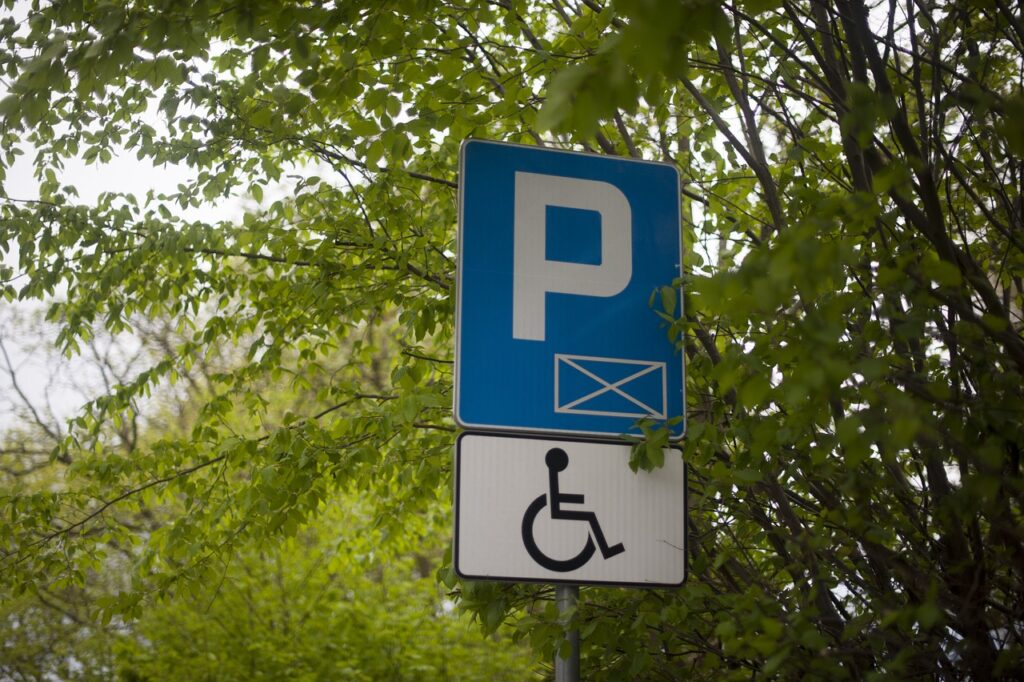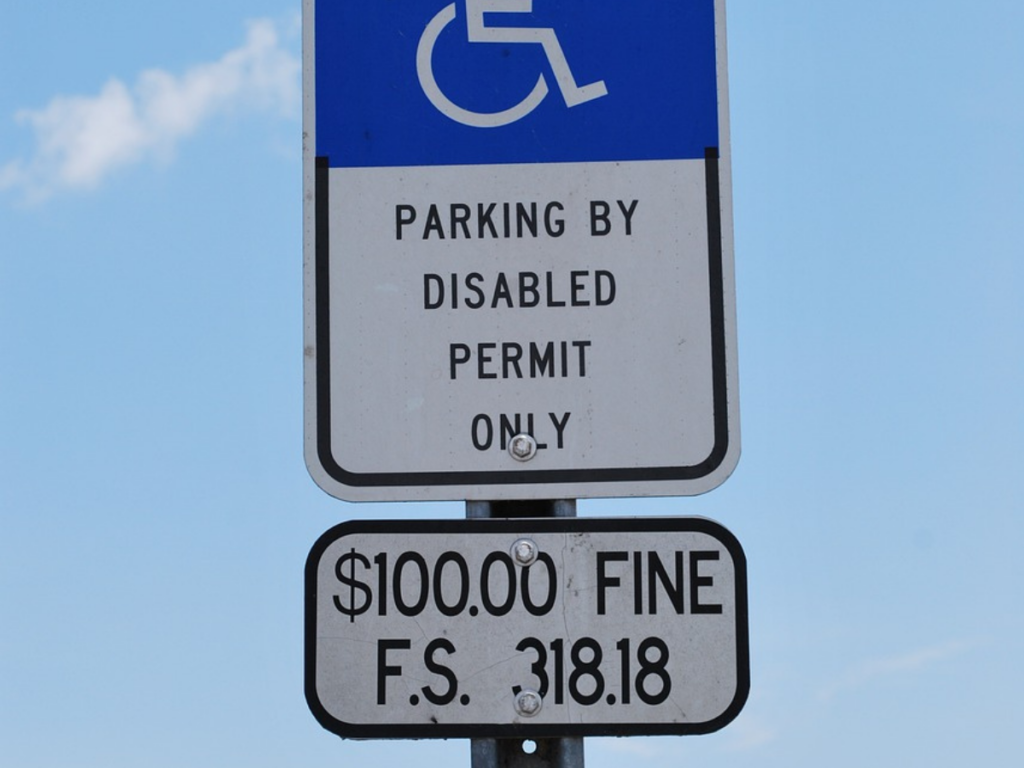Handicapped parking spaces were created to ensure accessibility and mobility for individuals with disabilities. These designated spots are not mere conveniences as they enable access to buildings, facilities, and services for those in need. Michigan, like many other US states, faces challenges in maintaining equitable access to these spaces, as highlighted by the many regulatory complexities, enforcement issues, and abuse instances from civilians without a permit. To have a better understanding, we’ll take a look at Michigan’s handicap parking regulations and compliance with Americans with Disabilities Act (ADA) standards.
We will also examine Michigan’s regulatory framework, permit acquisition processes, compliance imperatives, and enforcement, scrutinize the challenges for handicapped parking accessibility, and propose potential solutions and initiatives.
Understanding Michigan Handicap Parking Regulations
Michigan’s handicapped parking laws are outlined in the Michigan Vehicle Code, which sets forth regulations regarding the designation, enforcement, and use of handicapped parking spaces. These regulations encompass various aspects, including the specifications for designated parking spots, signage requirements, and the proximity of these spaces to building entrances.
The Michigan Vehicle Code outlines the procedures and criteria for obtaining handicap parking permits for those in need to ensure that only individuals with qualifying disabilities have access to these designated spaces. By adhering to these regulations, Michigan aims to promote accessibility and facilitate the mobility of individuals with disabilities. It fosters a more inclusive and equitable environment statewide. Compliance with these laws not only upholds the rights of individuals with disabilities but also contributes to the overall well-being and integration of diverse communities within Michigan.
Key Components of Accessible Parking in MI
Accessible parking spaces in Michigan must adhere to specific criteria to ensure optimal accessibility for individuals with disabilities. These criteria encompass minimum dimensions to ensure ample space for maneuvering and deploying wheelchair ramps or lifts from vehicles. Additionally, signage requirements are in place to clearly showcase designated handicapped parking spaces and facilitate their identification by drivers.
Another key component is the proximity of accessible parking spaces to building entrances. These must be carefully considered to minimize barriers and enhance convenience for individuals with mobility challenges. By meeting these key components, Michigan’s accessible parking spaces aim to provide practical solutions for individuals with disabilities, enabling them to navigate parking areas safely and access facilities with ease. These efforts underscore Michigan’s commitment to promoting inclusivity and accommodating the diverse needs of its residents.
Obtaining a Handicap Parking Permit in Michigan
Obtaining a handicapped parking permit in Michigan is a straightforward process designed to ensure that individuals with qualifying disabilities have access to designated parking spaces. Here are the general steps to obtain a handicap permit:
- Determine Eligibility: In Michigan, handicap parking permits are available to individuals with qualifying disabilities that affect their mobility. These disabilities may include difficulty walking, using stairs, or other physical impairments that necessitate accessible parking.
- Complete the Application: Once you have obtained medical certification, you will need to complete the handicap parking permit application form. This form is available from the Michigan Secretary of State’s office or can be downloaded from their website.
- Obtain Medical Certification: To apply for a handicapped parking permit, you will need to obtain medical certification from a healthcare professional, such as a physician, chiropractor, optometrist, physician’s assistant, or nurse practitioner. This certification should verify your disability and its impact on your mobility.
- Submit the Application: After completing the application form, you will need to submit it, and depending on the type of permit you are applying for (temporary or permanent), there may be additional documentation required, such as a photo ID or vehicle registration.
- Receive the Permit: Once your application is processed and approved, you will receive your handicapped parking permit. This permit should be displayed prominently in your vehicle whenever you are using a handicapped parking space.
For more information on the application process, you can visit the Michigan Department of State website.

Compliance with ADA Standards for Handicap Parking in Michigan
In addition to state regulations, Michigan’s handicapped parking spaces must also comply with the Americans with Disabilities Act (ADA) standards, which set forth requirements for accessibility in public accommodations. The ADA establishes strict requirements to guarantee that individuals with disabilities have equal access to facilities and services, including parking areas. These standards encompass various aspects, such as the dimensions and design of parking spaces, the placement and visibility of signage, and the provision of access aisles adjacent to designated spots.
Compliance with these federal guidelines underscores Michigan’s commitment to upholding the rights and dignity of individuals with disabilities and promoting equality. However, many citizens who do not have a handicapped parking permit follow the rules, creating obstacles for those with mobility challenges along with the ones in the state.
Challenges of Handicap Parking in Michigan
Handicap parking enforcement in Michigan faces significant challenges, primarily from inconsistencies in monitoring and enforcement efforts. This lax enforcement contributes to the widespread abuse and misuse of handicapped parking spaces by individuals without proper permits. As a result, the limited availability of accessible parking spots is further compounded, making the difficulties faced by individuals with disabilities much worse when it comes to finding suitable parking spaces. The lack of stringent penalties for violators fails to deter unauthorized parking in designated handicapped spaces, perpetuating the cycle of abuse.
Addressing Handicap Parking Abuse in Michigan
To address the rampant abuse of handicapped parking spaces, Michigan authorities must prioritize and enhance enforcement efforts. This entails implementing comprehensive monitoring strategies, such as increased patrols and surveillance of designated parking areas. Additionally, imposing stricter penalties for violators, including hefty fines and potential license suspensions, can serve as effective deterrents against unauthorized parking.
Civilians who don’t need or require a handicapped parking permit can also play a role in preventing handicapped parking abuse by simply being vigilant and respectful of designated spaces. By paying attention to signage and markings, individuals can ensure they do not park in handicapped spaces without a permit. They can also advocate for awareness and education campaigns to help raise public consciousness about the importance of preserving accessible parking for those who truly need it. Michigan can start to mitigate the strain on accessible parking resources by cracking down on handicapped parking abuse and promoting awareness, so citizens can also avoid the fines and penalties.
Handicap Parking Violations and Fines in Michigan
Handicap parking violations in Michigan carry substantial fines and penalties to help act as a deterrent against misuse of designated spaces. The fines imposed for such violations serve as a means to uphold the integrity of handicap parking regulations and ensure equitable access for individuals with disabilities. By imposing these consequences, the idea is to deter drivers from illegally parking in handicapped spaces, thereby reducing instances of abuse and ensuring compliance with established regulations.
The severity of the fines underscores the seriousness with which Michigan authorities address handicap parking violations, emphasizing the importance of respecting the needs and rights of individuals with disabilities.
Improving Handicap Parking Access in Michigan
Improving handicapped parking access in Michigan necessitates collaborative efforts to implement effective solutions. This involves conducting thorough assessments to pinpoint areas with inadequate accessibility and insufficient parking provisions for individuals with disabilities. Stakeholders, government agencies, property owners, and advocacy groups can work together to develop and implement strategies to address these shortcomings.
Increasing the number of designated handicapped and regular parking spaces, particularly in high-traffic areas, would help meet the growing demand and alleviate parking shortages. Furthermore, enhancing accessibility standards, such as ensuring proper signage, accessible routes, and amenities like curb cuts and ramps, can significantly improve the overall accessibility of parking facilities.
Enhancing Handicap Parking Accessibility in Michigan
Handicapped parking spaces are vital and ensure accessibility and mobility for individuals with disabilities in Michigan. These designated spots provide convenient access to buildings, facilities, and services. Michigan, like many other US states, has specific regulations governing handicapped parking to ensure equitable access for individuals with disabilities. Understanding and complying with these regulations is essential for both drivers and property owners to uphold the rights of people with disabilities.
To address the challenges and issues surrounding handicapped parking in Michigan, the state needs to enhance enforcement efforts and promote awareness among civilians. Michigan authorities must prioritize comprehensive monitoring strategies and impose stricter penalties for violators to deter abuse of handicapped parking spaces. Additionally, civilians can contribute by being vigilant and respectful of designated spaces, ensuring they do not park without a permit.
We need to remember that improving handicapped parking access in Michigan requires collaborative efforts to identify areas of need and implement solutions, such as increasing the number of designated spaces and enhancing accessibility standards. By prioritizing these initiatives, Michigan can create a more inclusive environment that respects the needs and rights of individuals with disabilities and mobility challenges.
Featured image by Brad Switzer on Unsplash.

